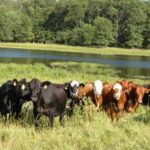A federal government programme delivering seeds, tools and fertilisers farmers in Niger State a fresh chance at growth.
When the federal government, in 2023, declared food security as a national emergency, it reflected the degree to which the country’s food system had become vulnerable.
Rising insecurity as well as soaring costs of fertilisers and seeds have resulted in poor yields, leaving smallholders in a struggle to feed their families.
Recently, in Niger State, the federal ministry of agriculture launched a programme to provide essential inputs—such as herbicides, fertilisers, fungicides, knapsack sprayers, growth promoters, tomato seeds, power tillers, and irrigation pumps—to small-scale farmers.
For a sector where over 70% of producers are still practising crude equipment and rain-based agriculture, such an intervention may prove to be transformative.
Why this matters
Nigeria loses billions each year in food imports, even though agriculture accounts for more than a third of the national employment.
Farmers’ output remains low mostly because of limited access to quality inputs and antiquated equipment.
A 50 kg bag of DAP fertiliser rose to ₦120,000 from about ₦50,000 within a year in some parts of the country—a price that’s out of reach of most farmers.
The government’s subsidies hope to reverse this negative trend, increasing output and ensuring that food is available for all.
Targeting the vulnerable
The new programme stands out chiefly for its inclusiveness. Niger State has often been sidelined in agricultural planning despite its pivotal contribution to national food production.
Inputs are being provided to Internally Displaced Persons (IDPs), commodity associations, cooperative groups, and communities that have historically lacked formal access to government support.
Mobilising women and other vulnerable groups, the programme aligns with Nigeria’s national policy on gender in agriculture, showcasing how social equity can strengthen food security.
Niger as a testbed
Niger State is noted for its ample agriculture. Notable evidence is its recent partnership with Lagos State for agricultural development.
This approach is not unique to Niger alone. In Abuja, the FCT Administration recently procured 550 metric tonnes of assorted fertilisers, including NPK and urea gel, to be distributed to farmers across the six area councils at a 50% subsidised rate.
However, the evolving initiative in Niger illustrates how national policy and local initiatives are fused together to bring about lasting agricultural transformation.
While input distribution in itself is a step in the right direction, there are certain hiccups. Without adequate extension services, training, and access to markets, many farmers may struggle to maximise the benefits of new tools.
Sustainability is a concern as well. Will farmers have continued, inexpensive access to inputs beyond this batch of distributions? Or will they fall back into old hardship once stocks are depleted?
Nonetheless, the programme indicates food security is not simply about more output. It is a matter of providing farmers with a means of support.
For Niger farmers who are recipients of the sprayers, seeds, or irrigation pumps, the initiative is a lifeline, holding out hope for greater harvests, greater incomes and less reliance on food imports.
Summary not available at this time.






